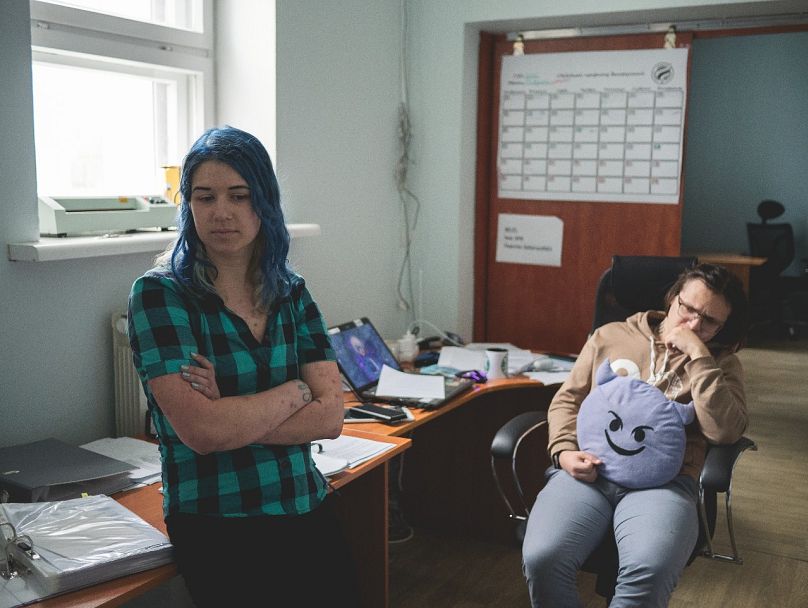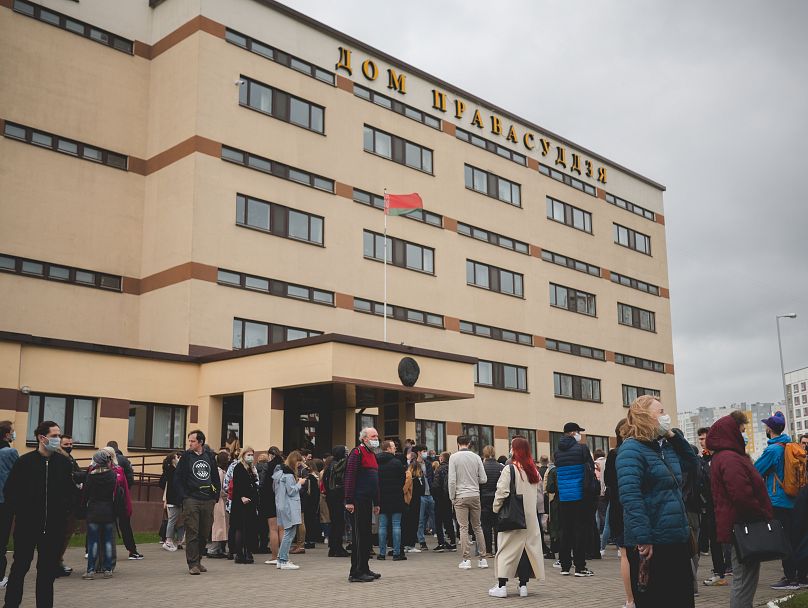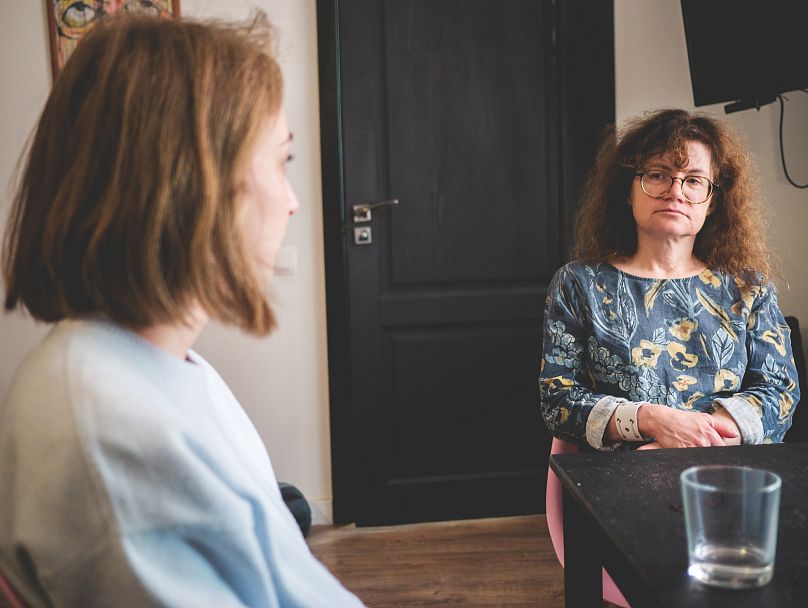Meet Sophia and Natallia. They are still openly against the government's continued crackdown on dissent. But their lives are complicated.
“First of all, I need to know exactly who you are and what do you want to do," Sophia, a 19-year-old student from Minsk, told us by phone.
 ADVERTISEMENT
ADVERTISEMENT
 ADVERTISEMENT
ADVERTISEMENT
"Sorry, but meeting journalists here may be really unsafe”.
Being an activist for 'Belarus Free Trade Union' - an opposition organisation that unites scholars and workers - her movements are under the constant supervision of the police. We met her in a noisy shopping centre near river Svislač, downtown Minsk.
Sophie gives us the lowdown on the protocols:
First rule: never use social networks like Facebook or Instagram. The organisation claims that police usually control many people's profiles.
Second rule: you have to delete every political message or picture you get. They tell us that police simply stop people on the street and check their cellphones.
“Today, we are living in a big prison," Sophia tells Euronews. "People are arrested every day. Not for organising demonstrations - there are no more demonstrations in Minsk, it’s too dangerous. They can arrest you just because of a sticker, for example, or because your shirt is white and red (the colours of the opposition).”
Sophia herself has been arrested twice. During the last six months, she has spent around 30 days in prison.
Nowadays, her group's activities consist essentially of providing support to other students in jail. “We send them food parcels and letters - that’s all we can do,” she says - and it is not a small job.
On 12 November 2020, a group of eleven students were arrested in Minsk. Today, they are facing charges under Article 342 of the Criminal Code of Belarus (“organisation and preparation of actions that grossly violate public order”), which carries a prison sentence of up to two years.
“Some of them are good friends of mine," Sophia explains. They have been in jail for six months, without seeing anyone. Meeting them in prison is almost impossible, even for their relatives. They just have to wait, and hope”.
Here come the Men in Black...
The trial against the students began on 14 May in the court of Minsk’s Partizansky district. That morning, about one hundred students gathered in front of the courthouse, asking to be allowed inside in order to attend the hearing. After half an hour, some policemen came outside ordering people to get away “as soon as possible”. Meantime, some vans with tinted windows arrived in the area. Aboard, there were a few dozen hooded men, wearing black clothes and military boots.
“Do you see them? They are members of Omon," said university professor Natalia Dulina, who accompanied us that day. "Now, we really have to escape!” Omon (Special Purpose Police Detachment) is the riot police of Aleksander Lukashenko, known as "the sword of the regime”.
Omon's members wear balaclavas in order to keep their identity secret and act without hesitation. “They just take you, load you into the van and take you away,” Natalia explains. That morning, in front of the courthouse, Omon detained 14 students.
'And three days later, I was fired...'
There were no specific targets: they simply caught those who didn't have time to escape.
Natalia had been teaching at Minsk State Linguistic University for almost thirty years. On 26 October, her students planned a big strike against the government. She supported them and believes that her support was the reason she was called by the university HR office three days later and fired.
“When I left my office, some minutes later, I noticed a man following me," she recounts. "Down in the street, there was the usual black van. They brought me to prison and jailed me for 14 days. The university administration exonerated themselves from any liability, claiming that, at the moment of my arrest, I was not on the academic staff anymore.”
Nowadays, Natalia is a member of the Coordination Council, the non-governmental body created by presidential candidate Sviatlana Tsikhanouskaya to facilitate a democratic transfer of power.
“They can arrest me again at any moment," she told Euronews. "I’m aware of this, so why should I hide?”
Every weekday, Uncovering Europe brings you a European story that goes beyond the headlines. Download the Euronews app to get a daily alert for this and other breaking news notifications. It's available on Apple and Android devices.













